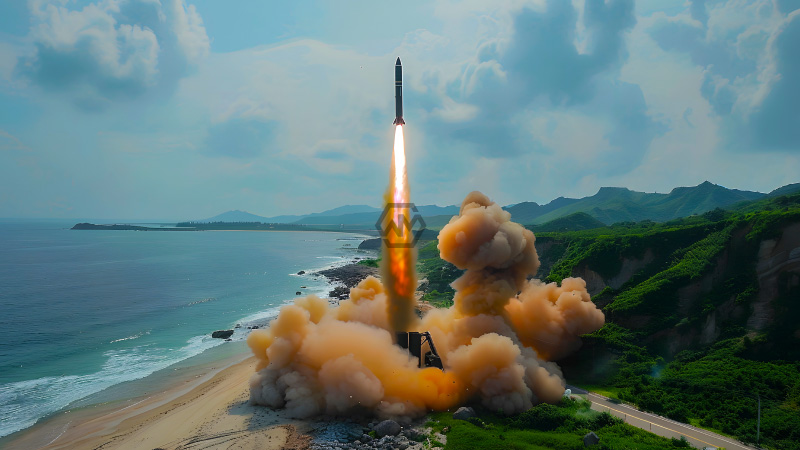- North Korea launched multiple short-range ballistic missiles into the East Sea.
- U.S., South Korea, and Japan condemned the missile test as a provocative act.
- Pyongyang strengthens military ties with Russia, raising regional security concerns.
North Korea’s launch of several short-range ballistic missiles into the East Sea further escalates tensions on the Korean Peninsula.
This latest missile test follows North Korea’s ongoing display of new military technology, including intercontinental ballistic missile (ICBM) systems and attack drones.
North Korea’s Missile Launches Heighten Regional Tensions
The missile launches, which took place early Thursday, underscore North Korea’s determination to enhance its military capabilities. As Seoul’s Joint Chiefs of Staff monitored the launch, they reported coordination with the United States and Japan to analyze the trajectory and intent behind the test. The response from Washington included a stern condemnation of North Korea’s actions, though officials emphasized that there was no immediate threat to U.S. personnel or territories.
Pyongyang’s missile activities align with its broader strategy of showcasing military strength, a pattern that has grown increasingly evident in recent years. Kim Jong Un’s calls for a nuclear weapons buildup are part of a larger narrative in North Korean state media, framing the United States and South Korea as existential threats. Additionally, Pyongyang’s display of new missile transporter erector launchers and attack drones signals a willingness to develop offensive capabilities further.
Tensions have not only increased between North and South Korea but also globally, as Pyongyang deepens its military cooperation with Moscow. Intelligence reports have indicated North Korea’s involvement in supplying munitions to Russia, further complicating international efforts to maintain peace. The U.S. and its allies have expressed concerns that these actions violate international law, but North Korea continues to defy global condemnation.
The situation in the Korean Peninsula remains precarious, with diplomatic solutions becoming harder to reach. The recent Ulchi Freedom Shield joint exercises between South Korea and the United States have also added fuel to the fire, with North Korea labeling these drills as aggressive provocations. The ongoing missile tests and military displays, along with increasing cooperation with Russia, raise questions about the future of peace and stability in the region.
As North Korea continues to strengthen its military and foster alliances with Russia, the international community faces growing challenges in de-escalating tensions. Diplomatic avenues must be explored further to avoid destabilization in the region.
“The United States condemns these actions and calls on the DPRK to refrain from further unlawful and destabilizing acts.” — U.S. Indo-Pacific Command



